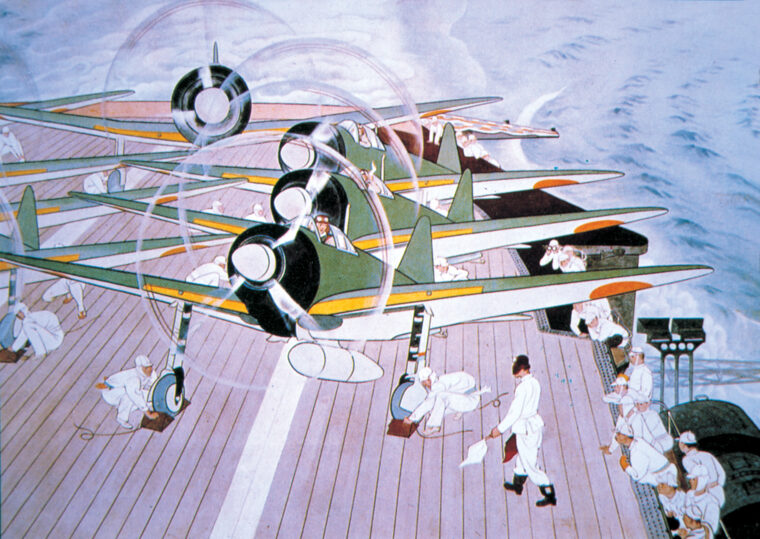
Joseph Stalin
Soviet Military Intelligence: Richard Sorge
By Pat McTaggartThe Siberians are coming!” It was a cry that spread terror through the ranks of the German Wehrmacht in the winter of 1941. Read more

Joseph Stalin
The Siberians are coming!” It was a cry that spread terror through the ranks of the German Wehrmacht in the winter of 1941. Read more
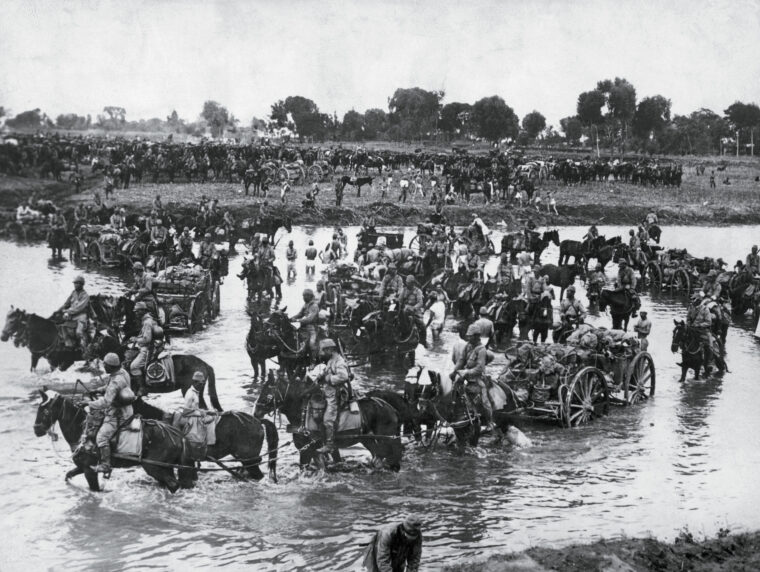
Joseph Stalin
In May 1939, Mongolian herdsmen and part-time militia cavalry crossed the Khalkhin Gol, or Halha, River near the village of Nomonhan in Manchurian-claimed territory. Read more
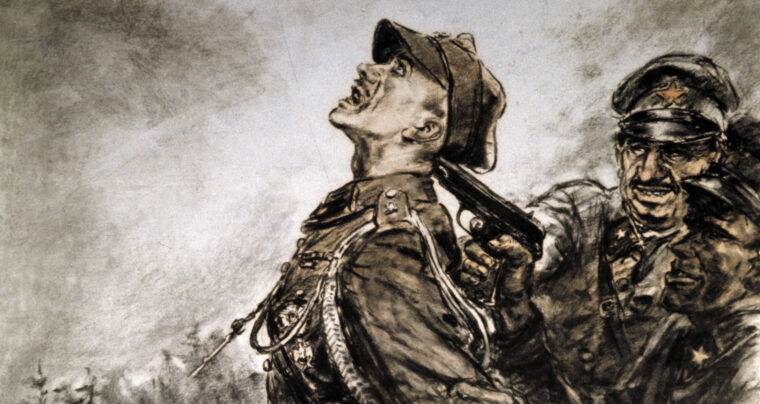
Joseph Stalin
On September 17, 1939, in the wake of Hitler’s invasion of Poland, the Soviet Red Army crossed the Polish frontier from the east. Read more
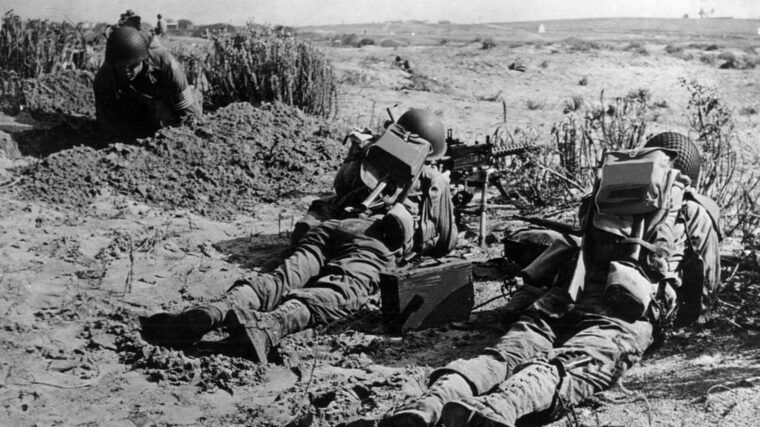
Joseph Stalin
Rain battered the shore and the seas were rough on the night of October 21, 1942. Under the surface of the water, a submarine carried the Allies’ best hope for turning the tide of war in 1942. Read more

Joseph Stalin
On February 23, 1942, Red Army Day, the People’s Commissar of Defense, Josef Stalin, issued Order No. 55. Read more
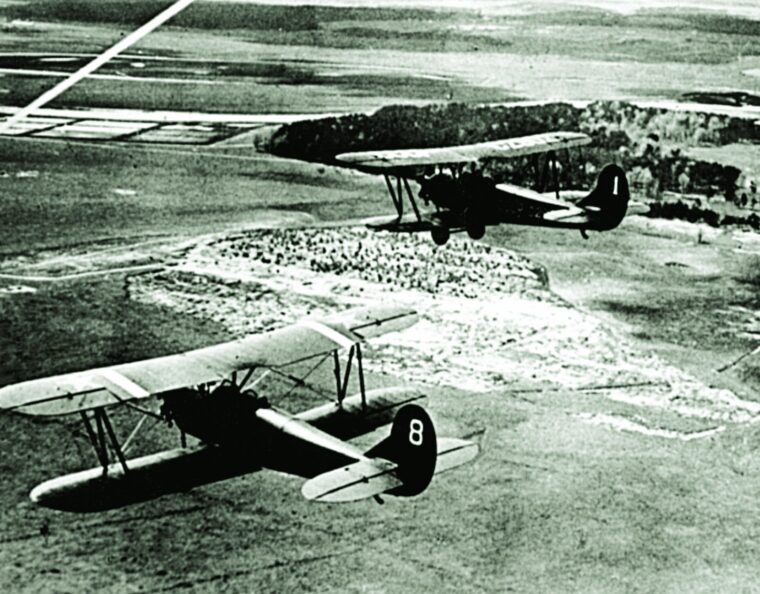
Joseph Stalin
Ignoring a nonaggression pact between Hitler and Stalin, Nazi Germany launched Operation Barbarossa, an invasion of the Soviet Union, on June 22, 1941. Read more
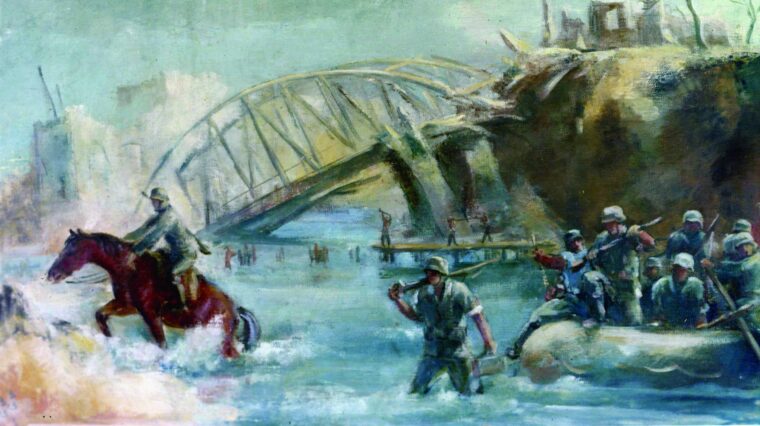
Joseph Stalin
As Adolf Hitler’s vaunted Sixth Army lay in its death throes in the ruins of Stalingrad, German forces to the west of the city faced their own kind of hell. Read more
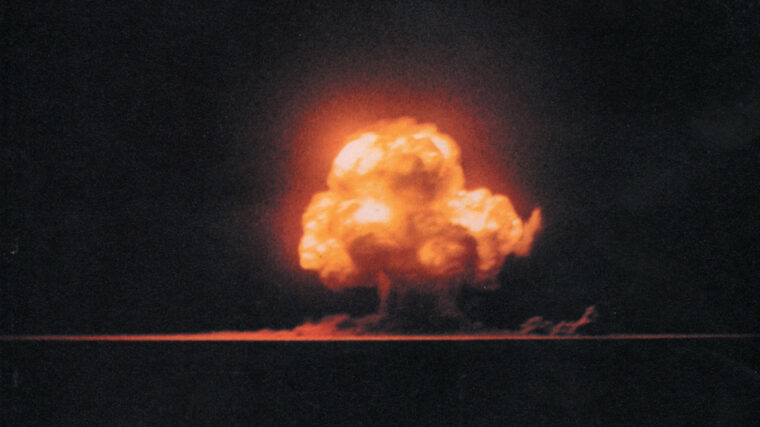
Joseph Stalin
The most controversial decision of the 20th century—probably in all of history—was the one reportedly made by President Harry S. Read more
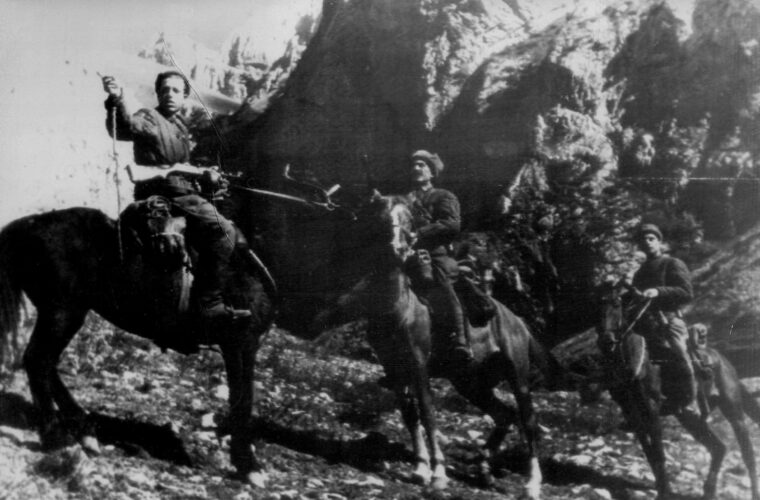
Joseph Stalin
At 8 am on the cold, blustery morning of November 7, 1941, the 24th anniversary of the Russian Communist Bolshevik Revolution of 1917, a dashing lone horseman galloped out of the Spassky Gate of the Kremlin onto snow-covered Red Square. Read more
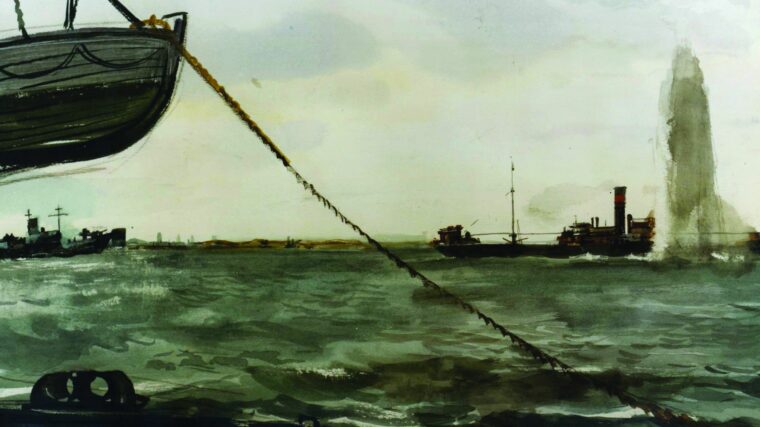
Joseph Stalin
Early in World War II, a bitter joke circulated within the Soviet military. It ran, “What is the first thing Russia does when war is declared? Read more
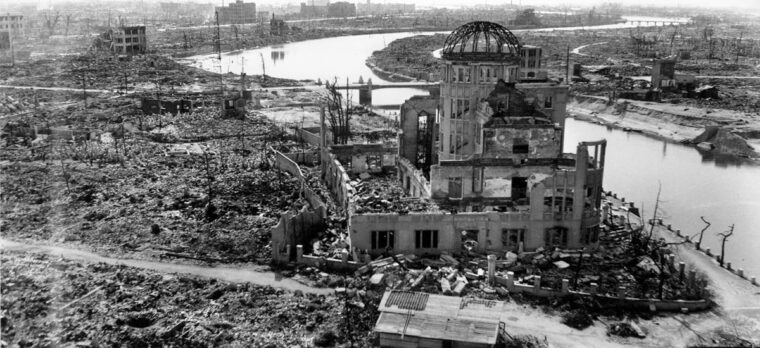
Joseph Stalin
How did we get to dropping an atomic bomb on Hiroshima? Who was responsible? Where and when did it begin? Read more
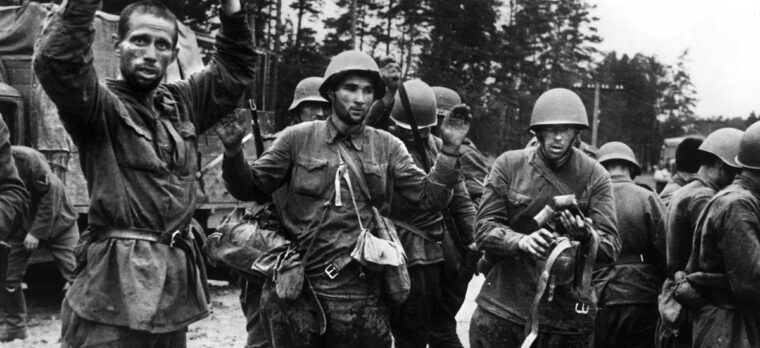
Joseph Stalin
By Richard Z. Freemann, Jr.
“War is mainly a catalogue of blunders.”
—Winston Churchill (1950)
On Sunday, June 22, 1941, as the sun slumbered, 3.6 million soldiers, 2,000 warplane pilots, and 3,350 tank commanders under skilled German command crouched at the border of Soviet-occupied Poland ready to invade the Communist nation Joseph Stalin had ruled with steel-fisted brutality for years. Read more
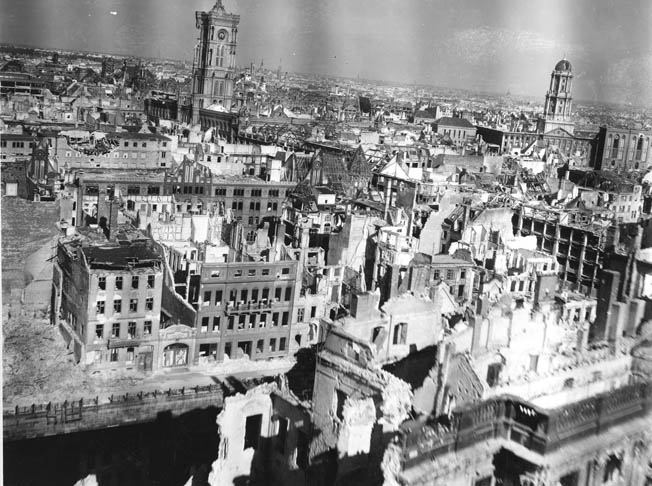
Joseph Stalin
World War II spanned six long years from 1939 to 1945. The Allied powers, principally The United States, Great Britain, and the Soviet Union, defeated the Axis powers, led by Nazi Germany, Imperial Japan, and Fascist Italy. Read more
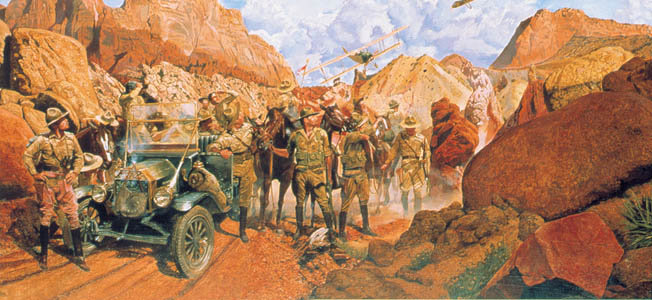
Joseph Stalin
General George C. Marshall had a problem. With the U.S. entry into World War II, he had to explain to an isolationist nation why the country was going to war. Read more
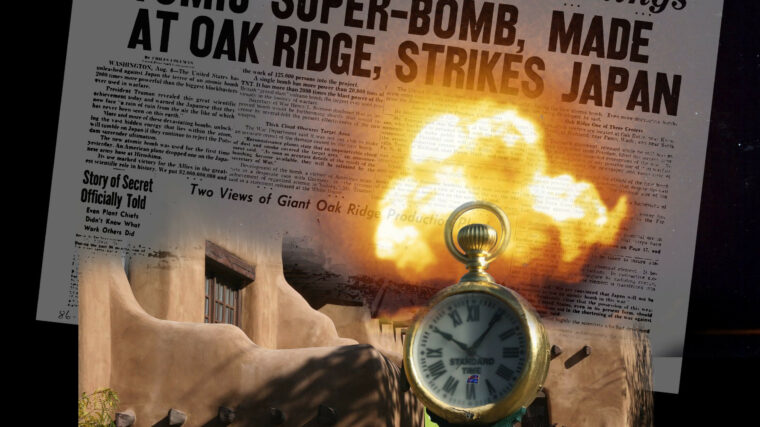
Joseph Stalin
New Mexico and its capital of Santa Fe bring to mind some beautiful images. Stunning sunsets, unlimited vistas, a plethora of art galleries, the spectacular food enlivened with the local green chile, an ancient Native American culture that still thrives, and a Spanish heritage tradition going back to within 50 years of Columbus’s arrival all make for a unique cultural and physical environment. Read more
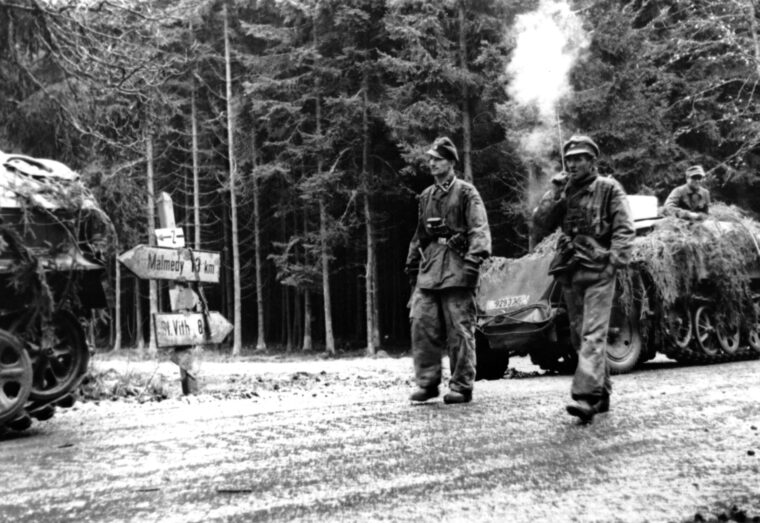
Joseph Stalin
During the Battle of the Bulge, the largest battle America has ever fought, Hitler chose the Sixth Panzer Army for the German juggernaut’s most important role. Read more
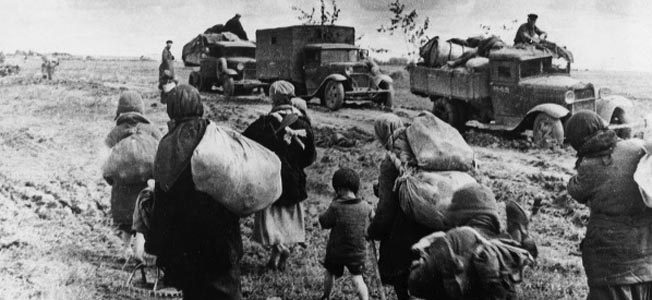
Joseph Stalin
In the fall of 1941, the Polish writer Aleksander Wat, recently released from confinement in a Soviet prison, made his way east across the vast expanses of the Soviet Union. Read more
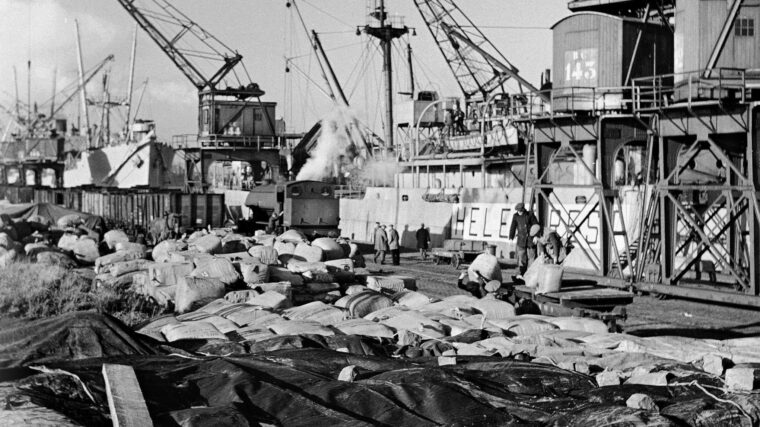
Joseph Stalin
After the war in Europe was won, General Dwight D. Eisenhower had many opportunities to review various campaigns with the leaders of the Soviet Army–– including even Joseph Stalin himself. Read more
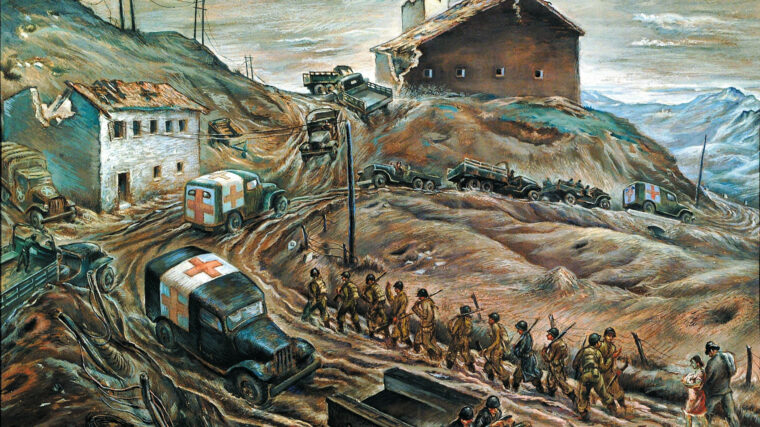
Joseph Stalin
The reason for it was unthinkable. The Gothic Line, the last line of defense in Italy, was necessary, but senior German commanders had not been concerned that it would ever be contested by Allied forces. Read more

Joseph Stalin
Almost from the beginning, the fractious alliance that defeated Nazi Germany was in peril. The United States and Great Britain had long distrusted the communist regime of the Soviet Union, and the feeling was strongly mutual. Read more